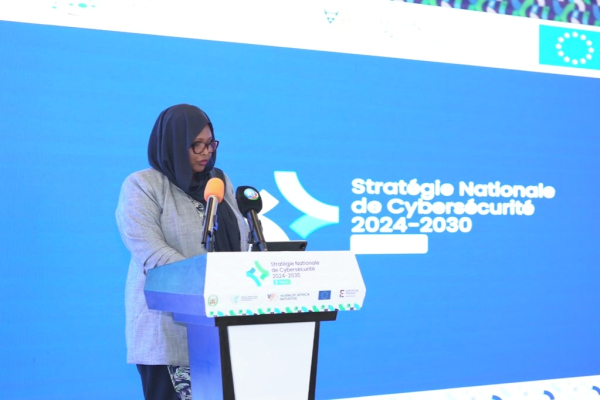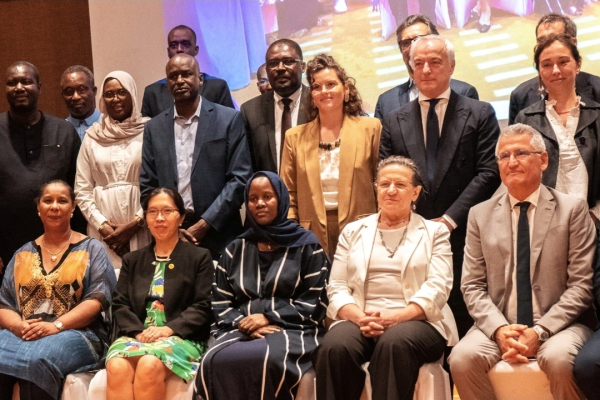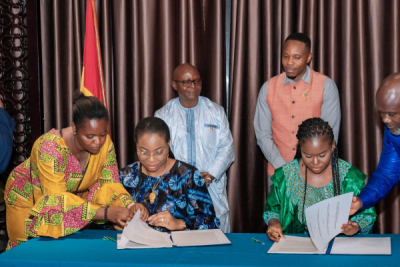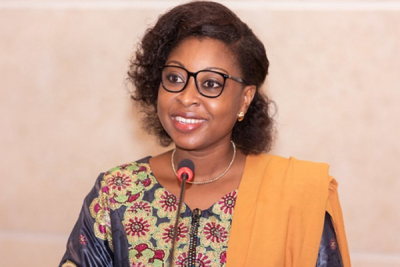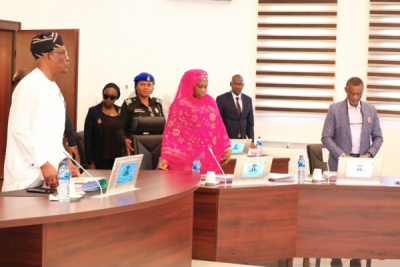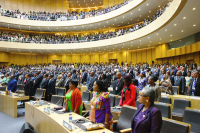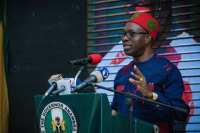
Public Management (596)
The Djiboutian government is committed to using digital technology to drive the country's economic growth. To do so, they aim to secure the nation's growing digital infrastructure.
Djibouti has unveiled its National Cybersecurity Strategy for 2024-2030, a comprehensive framework aimed at bolstering its digital security and advancing its goal of becoming a reliable regional digital hub. The strategy, developed by the National Cybersecurity Authority (ANCS), was officially released on Thursday, November 28.
The document is built around five key pillars: strengthening institutions and governance frameworks, protecting critical infrastructure, intensifying efforts against cybercrime, providing cybersecurity training for citizens and experts, and fostering national and international cooperation.
The launch coincides with the inaugural edition of the Hackathon Cybersecurity – Djibouti 2024. This event seeks to harness local talent to tackle technological challenges in cybersecurity. The strategy aligns with the “Djibouti Vision 2035” national development plan, which prioritizes digital transformation and resilience against cybercrime.
According to the Global Cybersecurity Index 2024 published by the International Telecommunication Union (ITU) in September, Djibouti has shown notable commitment to cybersecurity, though significant improvements are needed. The country is ranked in Tier 4 with a score of 31.47 out of 100, underscoring the urgency of building stronger capabilities.
With the new strategy, Djibouti aims to not only improve its ranking but also create a secure and resilient digital ecosystem essential for fostering a thriving digital economy. These efforts are expected to position the country as a key cybersecurity player in East Africa, attract greater investment, and enhance its competitiveness on the regional and global stages.
By Samira Njoya,
Editing by Sèna D. B. de Sodji
Digital transformation has become a strategic priority for African countries seeking inclusive and sustainable development. Backed by international initiatives, innovative projects are underway to expand access to technology.
The Italian government, in partnership with the United Nations Development Programme (UNDP) in Senegal and the Senegalese Ministry of Communication, Telecommunications, and Digital Economy (MCTN), launched a major initiative on Thursday, November 28, to bridge the digital divide and promote inclusive growth in Africa. This flagship project, part of the Mattei Plan for Italy–Africa, targets four countries: Senegal, Côte d’Ivoire, Ghana, and Mozambique.
"The UNDP is honored to support the Italian government in implementing strategic investments to advance digital development in Africa. This initiative highlights the crucial role of international collaboration in addressing Africa's financing gap and accelerating progress toward the SDGs through digital innovation," said Catherine Phuong, UNDP Deputy Resident Representative in Senegal.
The initiative comes as Africa faces a $1.6 trillion funding gap to meet the Sustainable Development Goals (SDGs) by 2030, according to a joint report by the Organisation for Economic Co-operation and Development (OECD) and the African Union (AU) titled Africa’s Development Dynamics 2023. By leveraging digital technologies, the project aims to energize key sectors such as health, education, agriculture, and governance, while improving public services.
For Senegal, the initiative aligns with clear national ambitions outlined in the country’s digital strategy, currently under development. Priorities include modernizing infrastructure, expanding access to digital tools, and fostering an inclusive digital ecosystem.
Once implemented, the project is expected to accelerate Senegal's digital transformation, strengthen its economic competitiveness, and support sustainable growth. By enhancing citizens' quality of life, it could also position the country as a model for digital transformation in Africa.
By Samira Njoya,
Editing by Sèna D. B. de Sodji
In 2016, Guinean authorities intensified efforts to take control of the country’s top-level domain. At the time, the resource was managed by the U.S.-based registry PSGNet.
The Guinean government has completed the repatriation of its national top-level domain, .GN, marking the end of "over 20 years of effort and determination." The Ministry of Posts, Telecommunications, and Digital Economy announced on Wednesday, November 27, that the official launch is scheduled for December 4.
Discussions to repatriate management of the domain, previously overseen by U.S.-based registry PSGNet, began in 2016. A key milestone came in 2017 with a decree signed by then-President Alpha Condé, which established rules for the technical and administrative management of the national Internet domain. In January 2022, Aminata Kaba, then Minister of Posts, Telecommunications, and Digital Economy, was tasked with securing Guinea's control over its domain.
This achievement is significant for Guinea’s digital sovereignty, as the country has identified digital transformation as a cornerstone of its socio-economic development. Local management of the domain is expected to bolster national cybersecurity, especially in an era of rapid technological change. In the Global Cybersecurity Index 2024 by the International Telecommunication Union (ITU), Guinea is classified as a Tier 3 country, indicating a "basic commitment to cybersecurity" with a score of at least 55/100.
“The world we live in is profoundly shaped by technology, and the future of our independence largely depends on our ability to control our digital infrastructure. Guinea must, more than ever, carve its own path in technological development by safeguarding its data, fostering local innovation, and ensuring equitable access to information and digital services for all its citizens,” said Rose Pola Pricemou, Minister of Posts, Telecommunications, and Digital Economy, in the October edition of the ministry’s Digital Bulletin.
By Isaac K. Kassouwi
Editing by Sèna D. B. de Sodji
Guinean and Sierra Leonean authorities have held several meetings since July as part of negotiations to advance a digital interconnection project. These discussions have laid the groundwork for collaboration between the two countries.
Rose Pola Pricemou, Guinea’s Minister of Posts, Telecommunications, and Digital Economy, and Salima Monorma Bah, Sierra Leone’s Minister of Communication, Technology, and Innovation, signed a framework agreement on Friday, November 22, in Freetown to enhance digital interconnection between their two nations.
The agreement focuses on linking the internet backbones of the two countries, aiming to improve connectivity and facilitate digital exchanges. It builds on discussions launched during the China-Africa Digital Summit in July. In August, a Sierra Leonean delegation led by Minister Monorma Bah visited Guinea to refine the technical framework of the partnership.
According to Minister Pricemou, the initiative is expected to harmonize postal policies to improve essential services for the population—particularly in rural areas—while making networks more robust and reliable. This should reduce costs, enhance the quality of digital services, and foster a dynamic digital ecosystem. It also seeks to encourage collaborative initiatives in fields like big data and cybersecurity.
As of early 2024, Guinea had 4.87 million internet users, representing an internet penetration rate of 33.9%, according to DataReportal. Sierra Leone, in comparison, recorded 2.7 million users and a penetration rate of 30.4%.
Cost remains a barrier in both countries. In Guinea, a monthly high-speed data package (at least 5 GB at 256 Kbps or higher) required 8.1% of the average gross national income per capita in 2023, according to the International Telecommunication Union (ITU). In Sierra Leone, the same metric stood at 38.2% in 2017, underscoring the challenge of affordable access in the region.
Adoni Conrad Quenum
Digital transformation is a key priority for the Beninese government. For instance, the administration plans to allocate a budget of 16.4 billion CFA francs to digital projects in 2025.
Benin's government plans to connect an additional 18 municipalities to fiber-optic networks by mid-2025, as part of its broader goal to expand high-speed internet access to all 77 municipalities nationwide. The announcement was made by Digital Economy and Digitalization Minister Aurélie Adam Soulé Zoumarou during a November 21 television program.
The deployment of fiber optics in these new municipalities will strengthen the national backbone, which currently links 50 municipalities via approximately 2,550 kilometers of fiber. The government aims to extend this network to a total of 3,300 kilometers. Additionally, nine municipalities will be connected through alternative technologies.
These efforts are part of a larger project to deploy high-speed and ultra-high-speed internet across Benin. This initiative, with an estimated cost of 207 billion CFA francs ($330.63 million), is a cornerstone of the government's 2021-2026 Action Plan. The government aims to position Benin as "West Africa's digital service platform, accelerating growth and fostering social inclusion."
Improving Coverage and Adoption
The project has the potential to significantly enhance telecommunications coverage, particularly internet access, nationwide. The government claims 4G network coverage already reaches approximately 90% of the population, a figure supported by the International Telecommunication Union's (ITU) ICT DataHub. ITU also reports that 2G and 3G networks cover 98% and 90% of the population, respectively, while 5G services are in the early stages of commercialization.
In June 2024, the Regulatory Authority for Electronic Communications and Postal Services (ARCEP) reported 11.06 million mobile internet subscribers and 20,000 fixed internet users. With a population estimated at around 13.7 million (World Bank, 2023), mobile telephony subscriptions stand at 17.8 million, while fixed-line telephony subscriptions are limited to 1,363. However, ITU data indicates internet and mobile penetration rates of 33.8% and 53.9%, respectively, as of the end of 2023.
Isaac K. Kassouwi
Nigerian states are ramping up initiatives to accelerate their digital transformation in line with the federal government's objectives. This effort spans all sectors of the economy, including education.
In Nigeria, the Federal Capital Territory (FCT) plans to distribute over 1,000 laptops to its secondary schools. Valued at approximately 990 million naira (around $589,000), the acquisition was approved by the FCT Executive Council during a meeting on Monday, November 25.
According to Danlami Hayyo, the FCT Secretary for Education, the laptops will come preloaded with educational content and learning materials focused on vocational skills.
“FCT schools will now transform into the digital education system, we will now move from normal teaching and learning classroom to media education system of learning,” said Chidi Amadi, Chief of Staff to the FCT Minister.
The laptop acquisition is part of a broader strategy to digitize the education system and improve teaching quality in the FCT. The Executive Council recently approved a contract for procuring examination materials. Earlier, in September, the FCT launched a program to train 3,000 primary school teachers in digital teaching methods.
The United Nations Educational, Scientific, and Cultural Organization (UNESCO) highlights two key benefits of digital technology in education. “First, it can improve instruction by addressing quality gaps, increasing available time and opportunities to practise, and personalizing instruction. Second, it can engage learners by varying how content is represented, stimulating interaction and prompting collaboration,” according to the 2023 Global Education Monitoring Report.
Isaac K. Kassouwi
Guinea, confronted with the need for administrative modernization, is turning to digital solutions to streamline its processes. This initiative represents a significant step forward in public resource management, prioritizing innovation and international cooperation.
Guinea is looking to Rwanda as a model for its first-ever digital public procurement system. A strategic agreement was signed on Wednesday between the Guinean government and the Rwanda Cooperation Initiative (RCI).
“We have proven expertise in digitizing public procurement, particularly in public financial management, and it is this experience we aim to share with Guinea. We signed this contract to formalize our commitment and support the country in establishing its digital system,” said Patricie Uwase, Director-General of the Rwanda Cooperation Initiative.
This agreement builds on a collaboration that began in 2023 between RCI and Guinea as part of the E-Procurement project. Championed by the transitional president, Mamady Doumbouya, the project seeks to enhance transparency, improve administrative efficiency, and optimize public resource management. It is also a critical tool in the fight against corruption—a persistent issue in Guinea’s public procurement sector, frequently criticized for its lack of transparency and questionable practices.
The new digital system aims to simplify and tighten control over procurement processes, ensuring greater traceability of transactions. Additionally, the digitization of public procurement is expected to reduce both delays and associated costs while boosting the confidence of foreign investors drawn to transparent and modern administrative practices.
By leveraging Rwanda’s recognized expertise, Guinea hopes to lay the groundwork for effective and transparent governance. If successful, this initiative could redefine public procurement standards in West Africa, positioning Guinea as a model for digital innovation and anti-corruption efforts. The government is targeting swift implementation, aiming for full digitalization of all public procurement plans by January 1.
Samira Njoya
Cloud technologies are essential to modern IT, enabling businesses to create scalable and resilient applications. However, a shortage of skilled professionals hinders adoption. Training African developers in this field opens access to high-paying tech jobs locally and globally.
Global talent outsourcing company Andela announced on November 15 a partnership with the Cloud Native Computing Foundation (CNCF) to train 20,000 to 30,000 African developers in cloud-native basics. This initiative is part of a three-year program aimed at addressing the growing global demand for cloud-native expertise.
Andela CEO Carrol Chang highlighted the growing demand for skilled tech professionals in Africa. ”We are excited to partner with CNCF to extend training and, ultimately, enhance job opportunities for African workers. The continent is emerging as one of the most important markets in the world […] and its young workforce will be key to solving the tech talent shortage,” she stated.
The training program will take participants six to nine months to achieve certifications and is designed to ensure graduates are equipped to meet the needs of the global cloud-native ecosystem. It will focus on key cloud-native tools, including Kubernetes, and prepare participants for industry certifications like the Kubernetes and Cloud Native Associate (KCNA) and Certified Kubernetes Application Developer (CKAD).
The program will be available to Andela’s talent marketplace of over 150,000 professionals, predominantly from Africa. Andela’s talent marketplace in Africa spans 49 countries; including Nigeria, Kenya, and Ghana.
According to The Rise of the African Cloud 2023 report by Xalam Analytics, the African cloud market has emerged as a multi-billion-dollar opportunity, experiencing annual growth rates of 25% to 30%. This represents a transformative opportunity for the continent and global technology ecosystems through the creation of high-demand roles in IT.
The collaboration between Andela and CNCF offers African developers the chance to gain in-demand cloud computing skills, addressing the global talent shortage and enhancing their access to international opportunities. This initiative is a significant step toward bridging the digital skills gap, empowering African tech talent, and establishing their role as key contributors to the global technology landscape.
Hikmatu Bilali
African parliaments are increasingly turning to digital technologies to improve efficiency. However, the digital divide remains a significant challenge, hindering progress in many regions.
South Africa (8 out of 10), Zimbabwe (8), Burundi's Senate (7), Morocco (7), and Mauritius (7) lead the continent in digital maturity among African parliaments, according to a new report published in October 2024 by the Inter-Parliamentary Union (IPU), a global organization of sovereign state parliaments. The report is based on responses from 115 parliaments or chambers across 86 countries, as well as from supranational parliamentary organizations.
Titled the "World e-Parliament Report 2024," the report offers a comprehensive analysis of digital technology use in parliaments worldwide through a digital maturity index, an innovative benchmarking tool. This index assesses parliaments across six key areas: governance, digital strategy and management; infrastructure; parliamentary systems; user support; digital content and publications; and citizen engagement.
“The purpose of benchmarking is not to create a league table of ‘good’ or ‘bad’ parliaments. Rather, it supports strategic decision-making on the use of digital technologies by highlighting the factors that can affect maturity,” the IPU stresses.
In addition to the leaders, Tunisia (6), Burundi's National Assembly (5), and Malawi (5) stand out with scores of 5 or higher. However, sub-Saharan Africa remains underrepresented among the top performers. According to the IPU, 50% of parliaments in the region rank among the 30 least digitally mature institutions, a situation attributed to a lack of modernization initiatives, insufficient investment in new digital systems, and an absence of ambitious digital transformation programs.
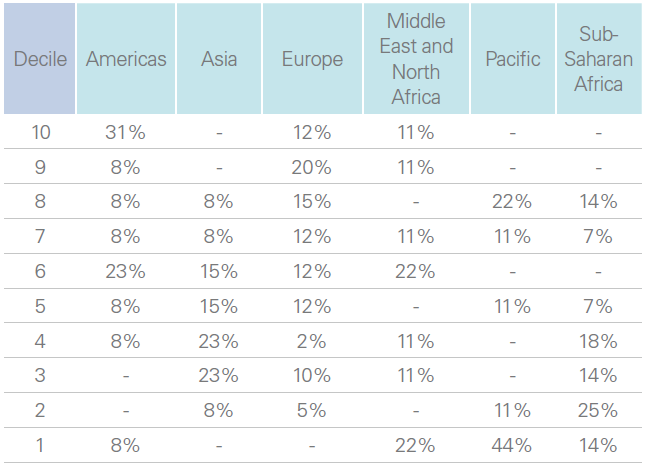
Distribution of parliaments by region for each decile ranking
At the bottom of the index, parliaments in countries like Djibouti, Lesotho, Madagascar, and the Central African Republic scored an average of 1 out of 10, reflecting significant gaps in digital adoption.
To address these gaps, the report recommends that institutions and governments develop clear strategic visions and comprehensive digital strategies; allocate adequate financial, human, and technological resources; establish robust governance frameworks; invest in capacity building; prioritize citizen participation; and strengthen inter-parliamentary collaboration.
Additionally, generative artificial intelligence is highlighted as a strategic lever to accelerate parliamentary digital transformation, offering the potential to deliver valuable insights and enhance the accessibility of parliamentary processes.
Samira Njoya
Lire aussi:
Anambra aims to integrate information and communication technologies across all sectors of the economy. It previously initiated projects to strengthen digital infrastructure, notably through a project to establish an Internet Exchange Point.
Anambra State, Nigeria, plans to develop its own data management platform as part of efforts to fast-track its digital transformation. With an estimated budget of 97.08 million naira (about $57,200), the project received approval last week during a State Executive Council meeting.
“By enabling better data integration across sectors, the platform will ensure that vital information is accessible in real-time for decision-makers, supporting data-driven governance,” said Law Mefor, Anambra’s Commissioner for Information.
The initiative is part of Anambra’s broader ambition to leverage technology to improve governance and drive development. Guided by its strategic vision, "Everything Technology, and Technology Everywhere," the state government aims to establish a digital economy that attracts investors, innovators, and businesses.
To achieve these digital ambitions, Anambra has been implementing various projects to upgrade its digital infrastructure. In August 2023, the state eliminated right-of-way fees to speed up fiber optic deployment. By July 2024, it had launched an extensive project to lay 2,400 kilometers of fiber optic cable, a move that supports its goal of providing free Wi-Fi across the state. Additionally, the government is planning to establish other essential digital infrastructure, including an Internet Exchange Point (IXP).
This data management platform is expected to contribute to Nigeria’s broader digital transformation, as Africa’s digital economy is projected to reach at least $712 billion by 2050—equivalent to 8.5% of the continent's GDP—according to a joint study by the International Finance Corporation (IFC) and Google. However, the timeline for the platform’s development and implementation has not yet been disclosed.
Isaac K. Kassouwi
More...
Digital transformation is a top priority for the Djiboutian government, which aims to establish the country as a technology hub by 2035.
Djibouti wants to strengthen its cooperation with the European Union (EU) to accelerate its digital transformation. The goal was at the center of discussions between Mariam Hamadou Ali, Djibouti’s Minister Delegate for Digital Economy and Innovation, and Denisa-Elena Ionete, the EU ambassador to Djibouti.
This cooperation aligns with the EU’s Global Gateway investment strategy, which aims to drive both digital and green transitions while delivering reliable, sustainable connections for partner countries. Key projects under discussion include e-permits, e-cabinet systems, cybersecurity, and digital skills training.
According to the International Telecommunication Union (ITU), Djibouti currently ranks 17th out of 47 African countries in ICT development, with a score of 61.6 out of 100—down from 16th place in 2023, when it scored 63.6. Additionally, the United Nations places Djibouti among the countries with a mid-range e-government development index (EGDI), scoring 0.2911 out of 1.
In cybersecurity, Djibouti ranks as a Tier 4 country by ITU standards, reflecting a basic government-driven commitment to cybersecurity. Legislative measures are cited as a strength, but the ITU notes that additional progress is needed in technical measures, organizational frameworks, capacity development, and cooperative actions.
The EU’s support is expected to boost the Djibouti Digital Foundation project, which is already backed by the World Bank. This project is aimed at transforming Djibouti into a tech hub by 2035 through the expansion of digital services and the establishment of a supportive environment for private-sector ICT investment.
Isaac K. Kassouwi
Earlier last year, Algerian authorities launched the digitization of the national agricultural registry. They have completed the digitization goal ahead of schedule.
On Sunday, November 3, Mohamed Yazid Hambli, President of Algeria's National Chamber of Agriculture, announced the completion of the digitization of the National Agricultural Registry (RNA). The announcement was made during the opening ceremony of the second National Exhibition of Agricultural Equipment, Products, Livestock, Agribusiness, and Refrigeration in Mascara.
"The process of digitizing the National Agricultural Registry, initiated early last year and carried out by the National Chamber of Agriculture, is now fully complete. This initiative has allowed for the issuance of digital cards to farmers across all 58 wilayas," stated Mohamed Yazid Hambli (photo, center).
Under President Abdelmadjid Tebboune, Algeria has leveraged digital transformation as a driver of development since 2019, achieving substantial progress on various digital indicators. According to the International Telecommunication Union, Algeria reached a score of 80.9 on the ICT Development Index in 2024, up from 77.8 in 2023, marking a notable advancement in the tech sector.
However, the digitization of the RNA faces several challenges. Farmers and local agents require training to effectively use digital tools, while limited access to telecommunications networks in rural areas hinders connectivity. Robust measures are also essential to protect the privacy and security of farmers' sensitive data. These obstacles could reduce the initiative's effectiveness if not addressed.
If these challenges are overcome, the RNA digitization could transform agricultural resource management by enabling better monitoring of land, crops, and water resources. It would allow for more targeted subsidies and aid based on farmers' actual needs and improve transparency in production chains. By facilitating precise resource management and enhancing transparency in the agricultural sector, this initiative could support more sustainable and equitable agricultural development.
Adoni Conrad Quenum
Guinea is making strides in digitalizing its public administration, but there's still room for improvement. According to the United Nations, the country's digital governance score increased from 0.2955 in 2022 to 0.4006 in 2024. Despite this progress, Guinea remains behind and is working to accelerate its digital transformation.
The Guinean Ministry of Commerce, Industry, and Small and Medium Enterprises recently announced the upcoming launch of an administrative document management platform (PLAGED) on November 13. This platform aims to simplify administrative procedures for citizens, marking a significant step toward digital governance in Guinea.
This initiative follows Guinean Prime Minister Bah Oury’s recent call for a concerted push to improve the country's digital administration, where progress has lagged. Oury attributes this delay to limited familiarity with the rapid evolution of digital technologies. According to the United Nations' report "E-Government Survey 2024: Accelerating Digital Transformation for Sustainable Development," Guinea scored 0.4006 out of 1 on the E-Government Development Index (EGDI), ranking 29th on the continent. This is an improvement from a score of 0.2955 in 2022, reflecting gradual progress in online government services.
The report also noted Guinea’s Online Service Index score of 0.4808, which assesses the technical features of national websites as well as policies and strategies for online service delivery across general and sectoral levels.
Earlier this year, in April, Guinean authorities launched “e-Learning” and “e-Consulting” initiatives to modernize administrative processes with innovative training and management tools. The introduction of PLAGED aligns with these efforts, supporting the government’s digital strategy to improve service delivery and accelerate the adoption of digital tools across public administration.
Adoni Conrad Quenum
The Ghanaian government is ramping up efforts to bridge the country’s digital skills gap. Officials recently announced plans to launch a $5 million fund aimed at fostering technological innovation.
Ursula Owusu-Ekuful (photo, left), Ghana’s Minister of Communications and Digitalisation, launched the “eSkills4Jobs” program last week. The initiative aims to equip over 5,000 young Ghanaians with essential digital skills, with a focus on supporting women from marginalized communities and people with disabilities.
The program is a partnership between the Ghanaian government, the World Bank, and the Ghana-India Kofi Annan Centre of Excellence in ICT.
“The digital economy is here to stay, and we must ensure no one is left behind. eSkills4Jobs will focus on creating tailored training programs, mentorship opportunities, and access to resources to enable participants to build relevant skills,” Owusu-Ekuful said.
The initiative aligns with the Ghanaian government’s broader goal of training one million young people in digital skills to meet the demand for a skilled workforce in a rapidly digitalizing economy. According to the International Finance Corporation (IFC), 20% of Ghanaian companies currently rely on foreign recruitment for digital skills, primarily because they cannot find qualified local talent. The World Bank estimates that approximately 625 million Africans will require digital skills by 2030.
The Ghanaian government believes that the skills acquired through the eSkills4Jobs initiative will not only enhance individual employability but also contribute to the overall growth of Ghana’s economy. World Bank data from 2022 shows that 3.1% of Ghana’s active workforce is unemployed.
Isaac K. Kassouwi


